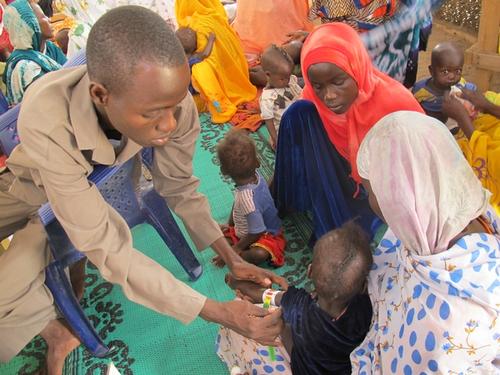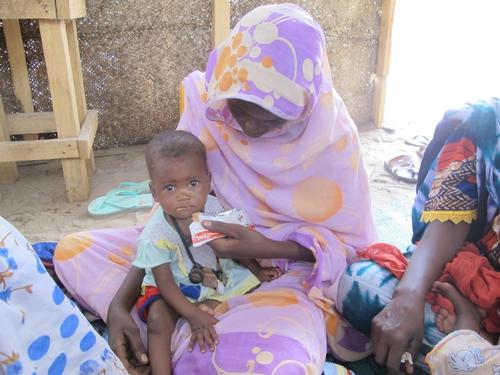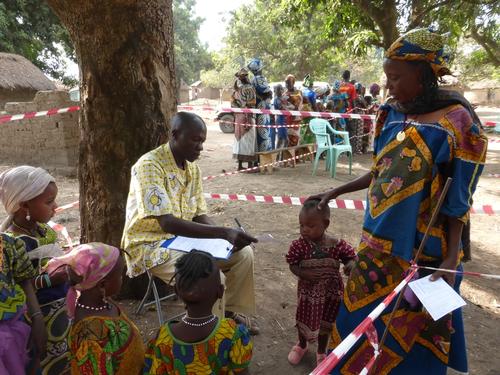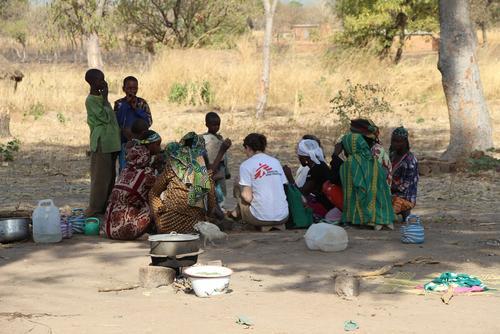While Médecins Sans Frontières (MSF) is responding to an acute malaria peak in Chad, the first results from a prevention campaign carried out in the south of the country are spectacular. Seventy per cent less cases have been reported after the distribution of a preventive treatment. This brings real hope for the fight against malaria, the number one killer of children under five in Chad.
Since July, more than 40,000 new malaria cases have been treated by MSF in Am Timan, southeast of the country, and in Massakory, west of the country.
"In Massakory hospital, we admit between 20 and 40 malaria patients each day, ” says Letizia Becca, MSF medical coordinator in Chad. “In addition to a big increase in the number of patients, the severity of the cases is also worrying, for adults, teenagers – something I had never seen before – as well as for children, who remain the hardest hit.”
A lethal disease when combined with malnutrition
When combined with another disease, such as acute malnutrition, malaria can be lethal. “My son is six months old. When MSF nurses came to our village, they told me that if my son gets fever, it can be because of mosquitoes’ bites. So when my child fell sick, I brought him to the health centre and they directed me here,” says Florence, an MSF patient in the Moissala malaria unit. “Now my son is better and I’m relieved.”
In addition to treating patients, MSF has organised and sent considerable means to respond to the crisis: supplying health centres with medicines and rapid diagnostic tests, mobile clinics to reach remote areas and awareness campaign aired through community radios.
New preventative treatment regime
If the current emergency efforts prove successful, the preventative treatment regime known as seasonal malaria chemoprophylaxis demonstrates that the disease is preventable. The treatment consists of giving children under five oral combined anti-malaria medicines during the season at high risk of malaria transmission. Fifty thousand children received it this year in southern Chad.
“Seasonal malaria chemoprophylaxis reduces the number and the severity of malaria for children and prevents them from falling into a critical and potentially lethal state,” explains Alain Camp, MSF head of mission in Chad. “A fall of 70 per cent of malaria cases in less than a week after the distribution of the treatment is a spectacular and very encouraging result.”
More encouragingly, the national programme against malaria has implemented this strategy in four districts this year. To fight the disease, it is essential that the Chadian authorities implement this strategy in the whole territory. MSF calls on donors to support the Chadian ministry of health and its partners in making SMC a priority of their funding in the fight against malaria in Chad in 2014.
MSF has been working in Chad since more than 30 years and currently has programmes in Abéché, Am Timan, Massakory and Moissala. The seasonal malaria chemoprophylaxis is implemented by MSF in Chad, Mali and Niger.






